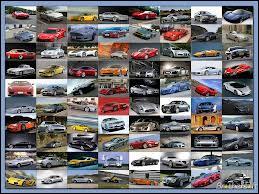The Indian automobile industry, faced with declining sales in the current fiscal due to high interest rates, rising fuel costs and commodity prices, needs a shot in the arm in the coming Budget to ride out of this tough situation. With the need to grow at a much faster clip, the industry is demanding excise duties to be brought to previous levels and policy stimulus.
 It is seeking an excise duty structure as stated in the auto policy and the 10-year Auto Mission Plan (AMP), and has asked for a concessional excise duty structure - an equivalent GST to be applicable at 10% flat across all segments such as cars, two-wheelers and commercial vehicles.
It is seeking an excise duty structure as stated in the auto policy and the 10-year Auto Mission Plan (AMP), and has asked for a concessional excise duty structure - an equivalent GST to be applicable at 10% flat across all segments such as cars, two-wheelers and commercial vehicles.
While in the case of bigger cars, the industry wants the distortion with smaller cars and the tax differentials to be narrowed, it wants duties to be reduced from 24%-27% to a uniform 22% irrespective of size of the vehicle and its engine displacement. Car sales fell 0.33% to 13.81 lakh units in the April-December period even as discounts to sell new vehicles have almost doubled this fiscal.
"The government needs to expedite economic growth to increase demand and improve disposable incomes. It has to control inflation and bring in more financial discipline in its policies," said RC Bhargava, chairman, Maruti Suzuki.
The slowing demand has lowered industry growth to 4.57% in the first nine months of the current fiscal. The auto sector is one of the most important sectors in manufacturing, forming around 6% of India's GDP.
The Indian auto industry was expected to reach the size of $145 billion, around 10% of the GDP, by 2016.
However, going by the current indices, the target looks a little remote, and the apex body of the Indian automotive sector - Society of Indian Automobile Manufacturer' (Siam) - says it may reach a size of $111 billion by 2016. "There is likelihood that AMP may not achieve its projected targets and will fall short by a huge margin. We need some urgent steps to boost demand," said Siam president S Sandilya.
High interest rates have really pushed car makers to the back foot, with potential customers putting off their purchases. Car loans are available at 10.5-13%, for trucks it is 14-17%, and for bikes and scooters it can be as high as 22-25%.
"The interest rate regime needs to move southwards to bring the cost of acquisition of new vehicles down. We need to have a firm policy for pricing fuel, especially diesel, so that we are able to plan for the long term," said Hyundai Motor India vice-president (sales and marketing) Rakesh Srivastava.
The other ancillary manufacturing sectors in the industry like components, tyres, batteries have also been demanding faster implementation of GST.
"The government should strive for early introduction of GST which would pave the way for rationalising the tax structure. Automotive industry involves largescale manufacturing at various levels, so there's an urgent need to streamline the taxation process in India while some faster reforms are needed to do away with multiple and overlapping taxes," said Gurupratap Boparai, CEO, Fiat India Automobiles.
Other segments have also aired their views. The Automotive Tyre Manufacturers' Association (ATMA), for instance, has demanded permission to allow import of limited quantity of natural rubber under a Tariff Rate Quota (TRQ) basis for FY 2013-14 at a concessional duty rate of 7.5% or Rs 10 per kg, whichever is lower. It wants a relook at the customs duty on natural rubber or increase in the existing customs duty on tyres to correct duty inversion.
"The customs duty on tyres needs be enhanced from the existing 10% to 20%," said Anant Goenka, chairman of ATMA and MD of Ceat Tyres India.
The Automotive Component Manufacturers' Association of India has also asked for uniform taxes on components that go into the manufacturing different vehicles, while the $1.2 billion Indian bicycle industry, which is aiming to reach $5 billion, has asked for incentivising prices by relaxing taxes on this segment.










 © 2025
© 2025